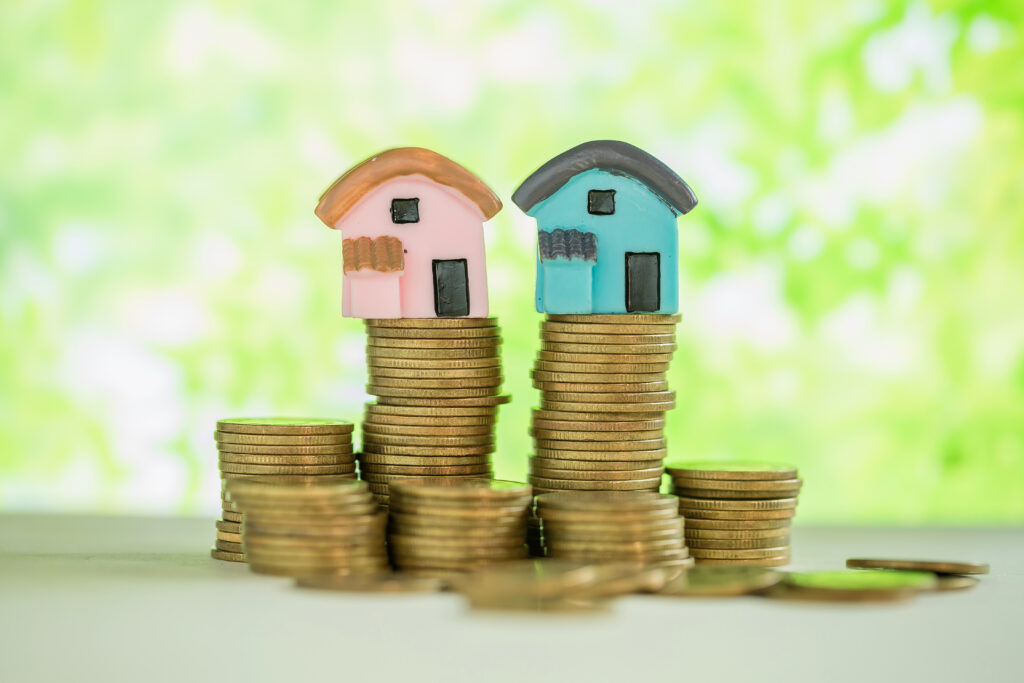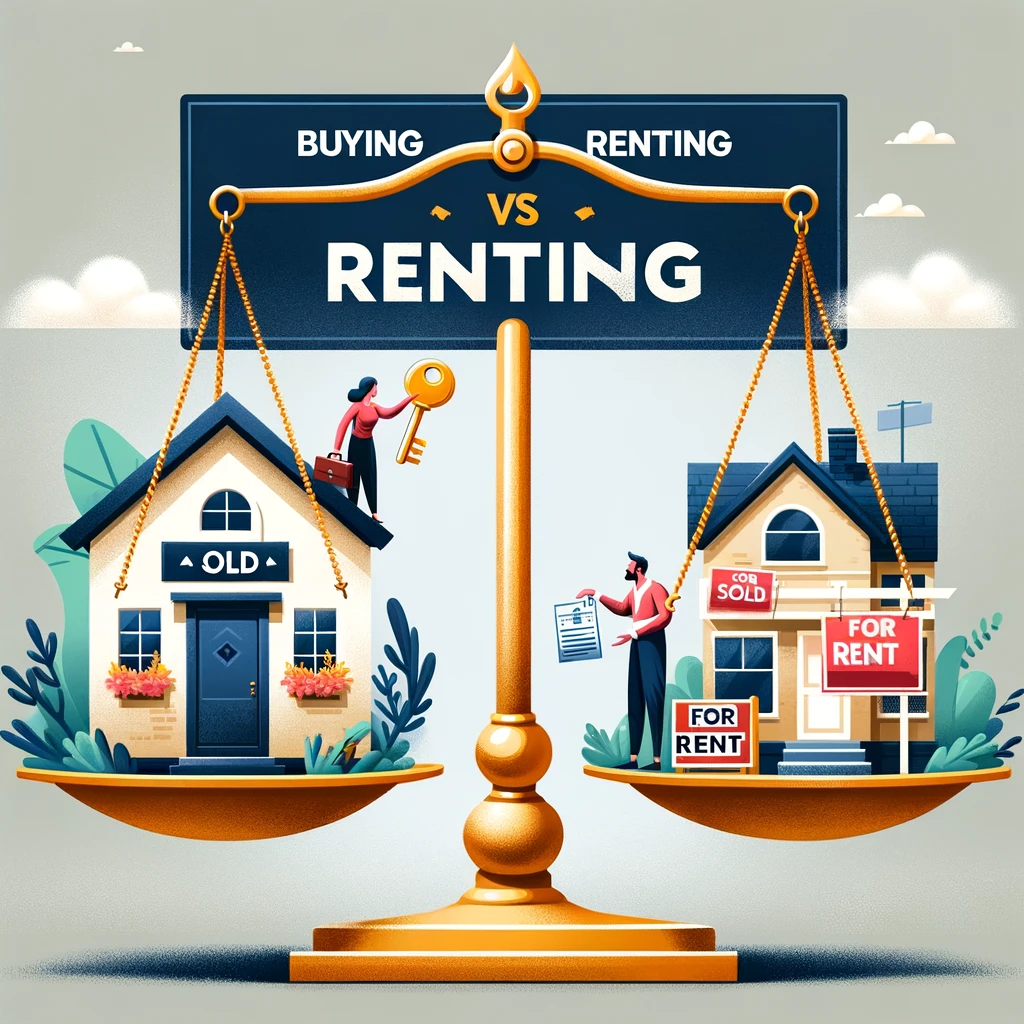Deciding whether to Buying vs Renting a home is a significant financial and lifestyle decision that can affect your financial stability and quality of life. Buying vs Renting a home offers distinct advantages and disadvantages, and the best choice depends on individual circumstances such as financial health, lifestyle preferences, and long-term goals. This article delves deep into the considerations of buying versus renting, providing a balanced view to help you make an informed decision.
Understanding the Financial Implications of Buying vs Renting a Home

The Financial Benefits of Buying a Home
Building Equity: One of the primary benefits of buying a home is the ability to build equity over time. As you pay down the mortgage, you increase your ownership stake in the property, which can be financially rewarding if home values in your area rise.
Tax Advantages: Homeowners can benefit from tax deductions such as mortgage interest and property tax deductions, which can significantly reduce the net cost of owning a home.
Predictable Payments: With a fixed-rate mortgage, monthly payments remain consistent throughout the term of the loan, unlike rent, which can increase over time due to inflation or changes in the market conditions.
The Financial Benefits of Renting a Home
Lower Initial Costs: Renting typically requires less money upfront than buying a home, as it involves no down payment and generally lower deposit requirements.
Flexibility: Renting offers flexibility. Without the commitment of a mortgage, renters can relocate without the complex process of selling a home, making it ideal for those who may need to move frequently for work or personal reasons.
No Maintenance Costs or Repair Bills: Renters are not responsible for maintenance or repair costs. If an appliance breaks down or the roof starts to leak, the landlord is typically responsible for fixing it, not the renter.
Lifestyle Considerations of Buying vs Renting a Home
Stability vs Flexibility
Buying: Owning a home offers stability. You can settle in a community without worrying about lease renewals. This stability can be particularly appealing to families looking to establish roots in a neighborhood.
Renting: Renting offers greater flexibility. If your job requires frequent relocations or you prefer not to deal with the long-term maintenance associated with homeownership, renting can be a more suitable option.
Customization vs Convenience
Buying: When you own a home, you have the freedom to make changes and customize your space to suit your tastes and needs without needing permission from a landlord.
Renting: While renting limits the extent to which you can alter your living space, it offers convenience, especially for those who value a lifestyle free from the responsibilities of home maintenance and repairs.

Long-Term Financial Outcomes
The Long-Term Investment of Buying a Home
Buying a home is traditionally seen as a good investment. Over time, a well-maintained home can increase in value. The equity built can serve as a financial reservoir or be leveraged for other significant investments, including retirement or funding education.
The Cost-Effectiveness of Renting
Renting can sometimes be more cost-effective in highly volatile markets or where property prices are excessively high. It allows individuals to invest savings in other opportunities that may yield a higher return than the residential real estate market.
Further Financial Insights
The Hidden Costs of Homeownership
While buying a home can be a great investment, it’s important to consider the hidden costs associated with homeownership:
Maintenance and Repairs: Unlike renters, homeowners are responsible for all maintenance and repair costs. This could include everything from minor repairs to major expenses like replacing a roof or furnace, which can be quite costly.
Property Taxes and Insurance: Homeowners are also responsible for property taxes and homeowners’ insurance, which can significantly increase the monthly cost of owning a home. These expenses can fluctuate, especially as property values and municipal assessments change.
Real Estate Market Risks: The housing market can be unpredictable. While property values generally increase over time, there are periods when the market can stagnate or even decline, potentially affecting the value of your investment.
Expanding on the financial benefits of renting:
- Opportunity Costs: The money used for a home down payment could be invested in other ways. Renters have the opportunity to invest their savings in stocks, bonds, or other investments that might offer higher returns, especially in the short to medium term.
- No Depreciation Worries: Renters are not affected by property depreciation directly. If the property value declines, it’s the landlord’s concern, not the renter’s, providing a layer of financial protection against real estate market fluctuations.
- Inclusion of Utilities: In some rental agreements, certain utilities may be included in the rent, which can reduce the number of separate payments renters need to manage and provide clearer monthly budgeting.

Lifestyle Impacts Detailed
Community Engagement and Homeownership
- Social Stability: Owning a home often leads to longer residence in a community, which fosters deeper social ties and engagement in local activities, schools, and government. This can enhance one’s sense of community and belonging.
The Flexibility of Renting and Its Impact on Lifestyle
- Ease of Downsizing: For older adults or those looking to simplify their lifestyle, renting can make it easier to downsize. Moving to a smaller rental property can be less cumbersome than selling a home and buying a new one, especially during retirement
Conclusion
Choosing between Buying vs Renting a home involves weighing both financial and lifestyle factors. Buying a home can be a pathway to building wealth and stability, but it requires financial readiness and commitment. On the other hand, renting offers flexibility and freedom from maintenance responsibilities, making it ideal for those with a transient lifestyle or those not ready for the financial commitments of homeownership.
By understanding the advantages and disadvantages of Buying vs Renting a home, you can choose the path that best aligns with your current needs and future goals, ensuring a decision that supports both your financial health and lifestyle preferences.
Suggestions for Inbound and Outbound Links:
Inbound Links:
You Might be interested in reading “Investing in Real Estate vs Stocks: A Comprehensive Comparison”ttps://moneyymagnett.com/investing-in-real-estate-vs-stocks/
Outbound Links:
Financial calculators for comparing renting vs. buying scenarios.

